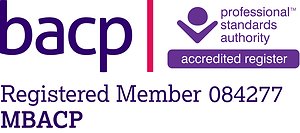What problems can I help you with
Abuse Affairs and betrayals Anger management
Anxiety
Behaviour problems
Bereavement
Bullying
Career
Carer support
Depression
Depression and anxiety
Dissociation
Domestic violence
Eating disorders
Emotional abuse
Family issues
Gambling
Generalised anxiety disorder
Internet addiction
Low self-confidence
Low self-esteem
Miscarriage
Obsessive compulsive disorder (OCD)
Panic disorder
Passive aggressive behaviour
Phobias
Redundancy
Relationship issues
Self-harm
Separation and divorce
Separation anxiety
Sexual abuse
Sexuality
Smoking
Spirituality
Stress
Suicidal thoughts
Trauma
Work-related stress
What is counselling
Counselling is about being in a therapeutic relationship where the counsellor can create an authentic, genuine relationship and use interventions to help create psychological shifts in your therapy to move forward and enhance your life. Counselling therapy can however also be stigmatised, we may feel there is 'something wrong' with us as we feel labelled by society when really, it is life's stresses, changes and circumstances around us that bring on depression or anxiety.
Otherwise known as talking therapies, counselling can help us deal with problems such as redundancy, relationship breakdown, bereavement, loss, past and present trauma (for example physical and sexual abuse, car accident).
The conditions under which counselling can help
When we are feeling down, depressed we can feel teary, isolate ourselves from family and friends and be unsociable, work performance may decline, we may lose or gain weight, feel tired or lethargic, neglect our hygiene, we may find it physically difficult to speak and forget things we want to say or do.
We may feel anxiety and panic from our thoughts and feelings arising from uncontrollable negative events around us. Therefore, our difficulty to control these negative events happening around us can cause upset to our life, making it unmanageable at times.
Anxiety or depression can result from events such as worry about a loved one's or our own ill health, or about impending redundancy, deployment, bullying, bereavement, divorce, relationship breakdown, coercive control (being put down by friends, partner, employer etc.), which can bring on low self-worth, low confidence, low self-esteem, that needs to be rebuilt. Young people's anxiety can for example, be from transition from primary to high school or about difficulty in coping with family breakdown, divorce, bullying at school which can impact your life as an adult too.
The symptoms of anxiety and depression can be a result of any number of things and your GP will advise you what kind of help is needed in addition to counselling.
What benefits can be expected
Counselling can lower your depression and / or anxiety symptoms to a manageable level by raising your self-awareness, resolving negative thoughts and making them positive and so help you get back on track in your life. You may already have your own goals when you arrange your sessions with me which I can work with at your pace. Or you may need to explore and prioritise according to your immediate needs. Therefore Counselling empowers you to work with yourself using counselling interventions which I may apply as appropriate for you.
Counselling can also help you work through negative thoughts, behaviour patterns and explore relationship patterns, feelings of loss, work stress (see above 'What problems can I help you with?' Just click here to visit Yahoo.) etc.
I will work with your agenda as I understand that it is a big step for some people, therefore you can work with as little or as much as you wish. This means you will still take something with you e.g. a CBT tool to help you cope with anxiety symptoms which can help lower anxiety levels.
How many sessions can you take?
I recommend an initial number of 6 sessions particularly for CBT after which we would review to explore if these sessions have helped you and whether you wish to continue sessions. An initial 6 sessions is only a recommendation mainly to give you at least a minimum time to follow any CBT exercises and process them enough to see how they may be helping you. You may need more sessions to help practice CBT exercises.
For Trauma sessions I recommend a minimum 35 sessions for you to be fully engaged in the particular process offered. I will assess if suitable for your presentation and ultimately with your agreement sessions may be commenced.
Otherwise there is no set boundary as to how many sessions you may wish to take.
My fees
Please contact me for information on my fees.


